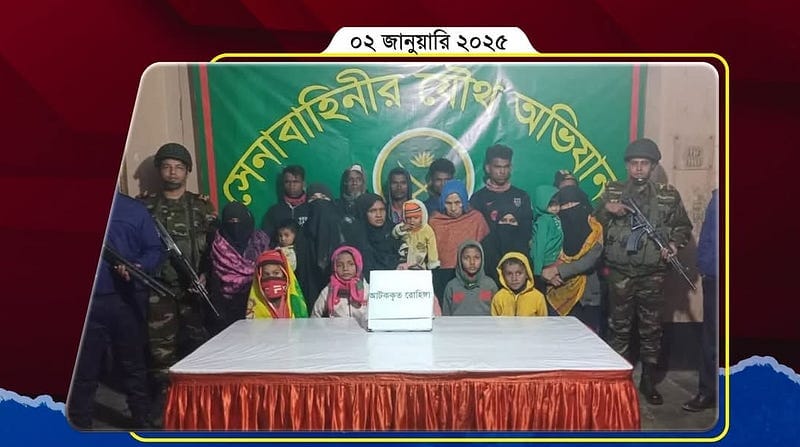This comment explores the recurring portrayal of Rohingya refugees as threats and its impact on public perception.
According to a report in RTv News, on January 1, 20 Rohingya refugees, including eight children, six women, and six men, were detained by locals in the Paruapara area of Parki Beach, Anwara, Chittagong. The refugees were subsequently handed over to the Anwara Army Camp and later transferred to the local police. Authorities confirmed that the refugees had fled the Bhasan Char refugee camp in Noakhali.
Anwara Police Station Officer-in-Charge Monir Hossain stated that the group would be returned to the Bhasan Char shelter camp following the completion of legal procedures. This incident follows a similar event on December 19 of the previous year, when 25 Rohingya refugees fleeing Bhasan Char were also apprehended at Parki Beach.
As is typical in such situations, the refugees, including babes in arms, young children, women, and men, were depicted sandwiched between armed law enforcement officers. This imagery perpetuates the narrative of criminalisation, presenting refugees as threats and instilling fear within the host community. Such portrayals fuel negative perceptions, effectively dehumanising individuals fleeing Bhasan Char and compounding their marginalisation. The island itself offers no livelihoods, severely limited healthcare, and remains a highly problematic and unsustainable environment for the refugees.

